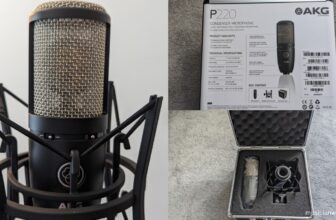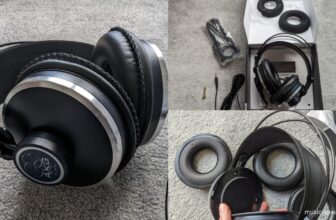10 Tips to Help You Finish Your Tracks

One of the most typical difficulties music producers confront is to follow through and complete their songs. It’s gotten more frequent with time. It may be simple for them to start a track, but it’s not as easy to complete one.
Finishing tracks is one of the most talked-about topics in music production. It’s easy to put together a few bars, but turning that into a captivating full track can sometimes seem like an impossible task.
Here are a few tips that will help you on your way to finishing tracks faster:
Contents
1. Perfection is Impossible

When you stop looking for perfection, you will be able to produce a lot more tracks.
Producing AND finishing a greater quantity of tracks is one of the best ways to become a better music producer.
100% perfection is a fallacy. It’s not attainable. No matter how hard you try, you’re never going to get your track sounding absolutely perfect.
This is particularly the case with music because it’s insanely subjective based on your tastes and preferences. What might sound like close to perfection might sound terrible to somebody else.
It’s a much better idea to use the 80:20 rule in music production. You’ll get 80% of the results from 20% of the work.
You should definitely try to spend a decent amount of time working on making your track as good as possible. However, there will be a point where you will reach ‘diminishing returns’ on your effort. When it comes to any art form, spending too much time may actually ruin it.
You will need to figure out the point that works for you. Some producers can work on the same track for a very long time while still keeping momentum and belief.
Other’s lose it much quicker. With a bit of experience, you will start to figure out what workflows work best for you in this case.
2. The Habit of Half-finished tracks
It can be pretty painful to spend months producing and not have anything to show for it.
The more you work on not finishing tracks, the more likely you are to give up in the future.
Forcing yourself to finish tracks will help you in two ways:
- You will learn many different techniques and skills in arrangement and track completion.
- You will have a much greater catalog of tracks to release.
This might sound like an obvious point, but it might not be to some. Many producers only decide to finish the ones that they think will have the absolute greatest potential.
That’s great if it works for them. However, if you’re struggling to finish most tracks, then you need to start exercising the ability to finish tracks as much as possible.
Allowing yourself to give up halfway through producing a track will only make you mentally less resilient later to finish other ones.
3. Collaboration and Feedback
It’s great to have independence as a musician or producer, but getting the perspective of other like-minded people can make a big difference to your efforts.
For starters, here is a resource for some great music collaboration websites.
For example, you could:
- Send the stems of your track to another producer to help get ideas on melodies, sounds, pads, arrangement, beats, mixing, etc.
- Get in touch with a vocalist to add some vocal lines to your tracks.
- Send on your track to friends who actively listen to the type of music you are producing. They do not necessarily have to be musicians. Sometimes getting an outsider’s perspective can help you understand how your audience might react to the music.
There are a few important points that you should consider when getting feedback from other musicians:
- You need to stay away from very cynical people but cling to those that can constructively criticize your music. Figure out who is going to give you honest and useful feedback. In music, you need to develop a thick skin and be able to accept and work on your areas for improvement. If you get offended about feedback, you’re going to struggle to improve.
- Beware that friends may try to sugarcoat feedback. Flattery is defined as ‘telling the other person exactly what they want to hear’, this is exactly what you want to avoid when receiving feedback from other people. If you think that some of your friends are incapable of giving you honest feedback (some people are just too polite), then you can’t depend on them for this task.
- Be able to judge good feedback from bad: You still need to keep a fine balance between acting on the feedback you’ve received and having the vision and belief in your music to know when it’s truly great. This is a very difficult line to reach, but you need to always maintain belief in your ability. Many very successful artists have been turned down by big names in their respective industries. For example, writers James Patterson and J.K Rowling were both constantly shot down before they made it big. They had the perseverance to keep going, whereas countless others have fallen at the first hurdle.
4. Give the Track some Time

You should never try to start and completely finish a track in one night.
No matter how good you are at producing music, coming back for another listen with fresh ears can reveal gaping holes in the mix and big problems with the arrangement.
After a long session of arranging and mixing, you can get far too wrapped up in the details, and not really get a whole track perspective on your mix. What sounded great last night might not sound the same the next morning.
Personally, I’ve seen how a fresh pair of ears can impact a track. Sometimes when you’re involved in the music production process you listen to a track countless times and you get stuck in a rut so to say. That is why it’s good to leave it a bit and then come back only to realize what it’s been missing.
Also, if you have the option, when you’ve finished a track it can be useful to leave it a week or two before releasing. Leaving it for a longer period can really help you listen to it again with fresh ears.
5. A Good User Library
As you’re producing tracks, start organizing your recordings, MIDI lines, effects, etc, into your own user library.
You are in the process of creating, so it’s only natural that you need inspiration and can sometimes have a lack of it. When you’re struggling for inspiration on finishing a track, you can just pick from your library.
This is like using presets, except you’re the one who actually created them in the first place!
6. Separate the Writing from Editing
Separating and organizing your workflow is a great way to help finish tracks.
While you’re in a creative mode, try your hardest to get as much material down and recorded in your track as possible WITHOUT EDITING.
It can be difficult to maintain bursts of creativity. If you spend 45 minutes tweaking the effects of your first synth track, that’s really going to interrupt your creative flow.
When you’re out of the zone of creativity, then you can get down to the editing stage. Here you can arrange your tracks and make objective decisions on mixing, effects, and processing.
7. Limit Yourself to a Few Options
Modern DAWs are fantastic in their ability to offer you an almost infinite number of options for your sound.
The downside is that you can get stuck in an endless cycle trying to figure out what sounds or plugins to use for the task. The correct way to approach this is to go slow and try mastering one at a time.
Master one synth plugin instead of buying every one of them online. Once you master a virtual or physical instrument, you have a far greater range of musical expression.
Limiting the number of options can free your mind up to focus on your creativity.
8. Get a MIDI controller

External sound hardware can help to interface yourself a bit more work your tracks. These are great if you play keyboards, but there are also many other great types of midi controllers that can give you much greater freedom of expression for your music.
MIDI has the great benefit of being very basic while still being extremely powerful. If you have a MIDI controller with keys, pads, and a few knobs, you can map them to do almost anything in most DAW software. For example:
- Record synth lines
- Record drum beats
- Use one knob to control the EQ of a synth – this can help you do nice filter sweeps at a more fluid level
- Use a knob to control reverb and delay
- Use a knob to control oscillator rates
These are all very basic uses of MIDI controllers, but they are some useful examples to those that don’t have experience with them.
Another great option is drum pads. Using these can add a real human element to your music. You can get simple MIDI pads or fully-fledged percussion pads.
Related:
9. Knowing When to Stop
Earlier on, I mentioned that you should get in the habit of finishing tracks as much as possible.
However, you should also learn to decide early on if a track is going nowhere.
This can be difficult to do, especially if you’ve been working on a particular track for some time. However, it’s a skill that you must acquire in order to be a better music producer.
It can be better to cut the cord and not get lost in a pointless exercise of trying to make a bad idea sound good.
10. Set Bigger Goals
Most producers need to get a large number of tracks under their belt before they come up with anything decent.
Setting yourself a bigger goal can really help you focus on finishing tracks. For example, aim to finish one track a day for 20 days in total.
When doing this, you may actually come up with some of your best work. You stop obsessing on the details, and you’re forced to move onto new material quickly.
I would not advise that you should fully master and finish your track in 20 days. It’s more an exercise in coming up with all the ideas, arrangement, and a decent mix of a full track in one session.
Conclusion
One of the most common problems that music producers have is to keep their compositions going. It’s gotten more difficult with time. It may be easy for them to compose a song, but it isn’t as simple to finish one.
Most music producers find themselves in a rut every once in a while, this is why the tips that are laid out in this article can come in handy.
The topic of tracks’ finishing gets a lot of discussion in the music production world. It’s simple to put together a few bars, but turning that into an engaging full track may at times appear impossible.





